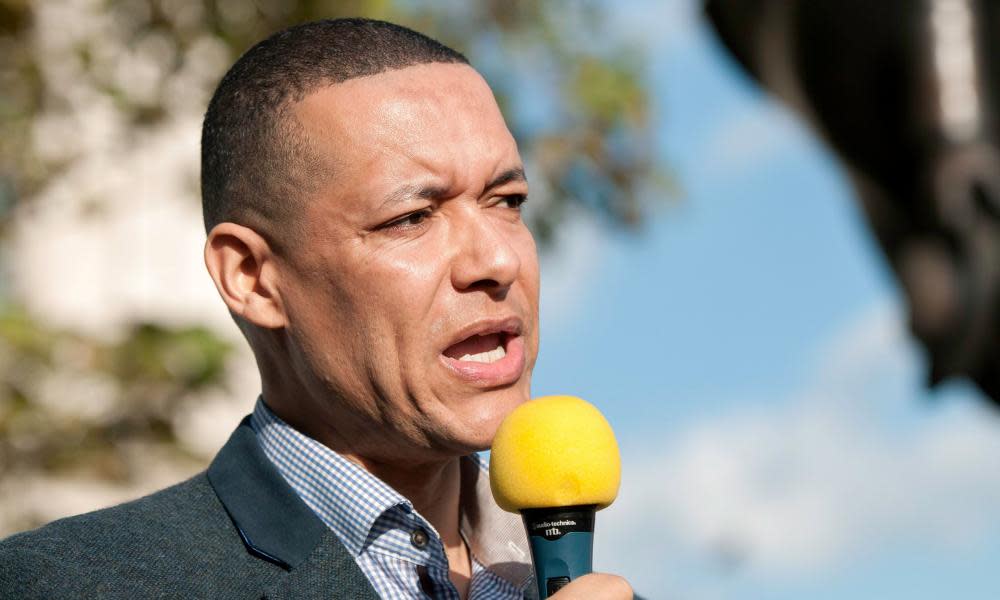Clive Lewis claims New Labour failed to tax the rich enough

New Labour failed to tax the richest in society heavily enough, the shadow Treasury minister Clive Lewis has claimed, after his party came under fire last month for backing the government’s tax cuts for middle-earners.
As MPs prepare to debate the finance bill, Lewis defended Labour’s decision not to reverse Philip Hammond’s planned increases to the tax-free personal allowance and the higher-rate threshold, which will largely benefit richer households.
“Increasing the threshold for the higher paid wouldn’t be our priority but, after eight years of Tory austerity, with real wages still below their 2010 level, and with even the relatively better off feeling the pinch, it is hard to justify taking even this small amount away from people,” he said in an article for the Guardian.
Instead, Lewis, who works in John McDonnell’s Treasury team, turned his fire on the record of the New Labour government from 1997-2010.
“Labour in government raised more than £100bn to fund its spending programme. Yet these additional taxes largely did not come from the very top of the income distribution,” he said. “On the contrary, avoidance turned tax into an optional extra for the super-rich, whilst major giveaways were introduced to the few genuine wealth taxes we have, like capital gains tax.”
He accused Tony Blair and Gordon Brown’s New Labour of “leaning on those further down the income scale”, while leaving “almost untouched” the “huge fortunes of those at the very top” – citing cuts to corporation tax, and fiscal drag, which brings more people into higher tax bands by leaving thresholds unchanged.
Lewis’s comments are likely to reignite the row within the parliamentary Labour party about the right approach to tax-and-spend, as Labour tries to position itself for a possible general election in the coming months, if Theresa May struggles to get her Brexit deal through parliament.
Twenty Labour backbenchers, including David Lammy and Lisa Nandy, defied the Labour whip to oppose Hammond’s tax cuts, saying the £2.7bn cost of the policy could be better spent on tackling poverty.
McDonnell, who has adopted an increasingly high public profile in recent months, has raised eyebrows as shadow chancellor, including among some of Jeremy Corbyn’s close allies, with a series of unexpected decisions, most recently suggesting Labour could restore child benefit to higher earners.
George Osborne scrapped child benefit for households where one person earns more than £50,000 in 2013.
Income inequality widened significantly under the Conservative governments of the 1980s and early 1990s. An assessment of Labour’s record by the Institute of Fiscal Studies in 2013 found that “child and pensioner poverty fell significantly” but, “those right at the top saw their incomes increase very substantially with the result that, on most measures, overall inequality nudged up slightly.”
Lewis, the MP for Norwich South, returned to the frontbench in January after resigning as shadow business secretary last year, in order to vote against the triggering of article 50, the formal process for leaving the EU.
He has been tasked with working on ways of reforming the tax system to encourage the radical shift needed in the economy if the UK is to meet its carbon emissions targets.
“We are looking at ways to shift the balance of taxation away from work and on to the practices that are destroying the environment on which a healthy economy depends,” he said.
Lewis has only been an MP since 2015, but was widely seen as a rising star in the early days of Corbyn’s leadership, when he was quickly propelled to the frontbench.

 Yahoo News
Yahoo News 
